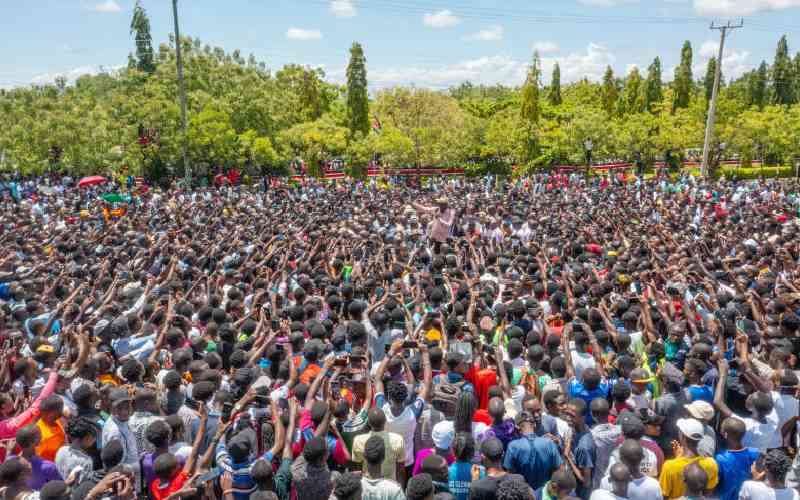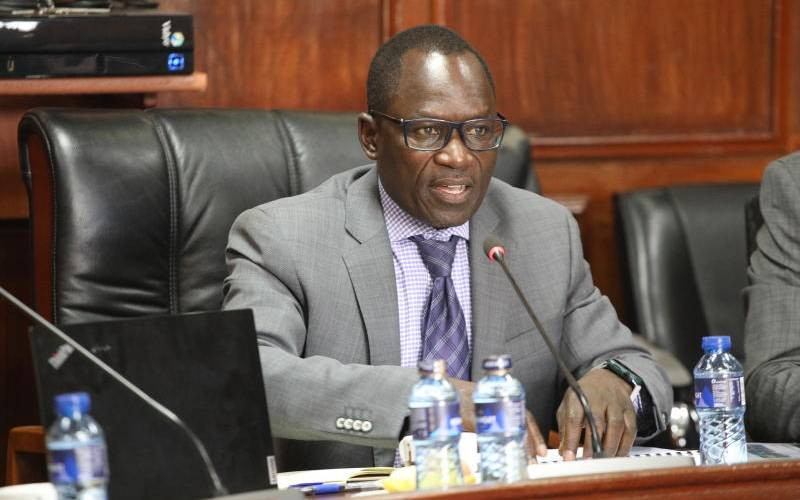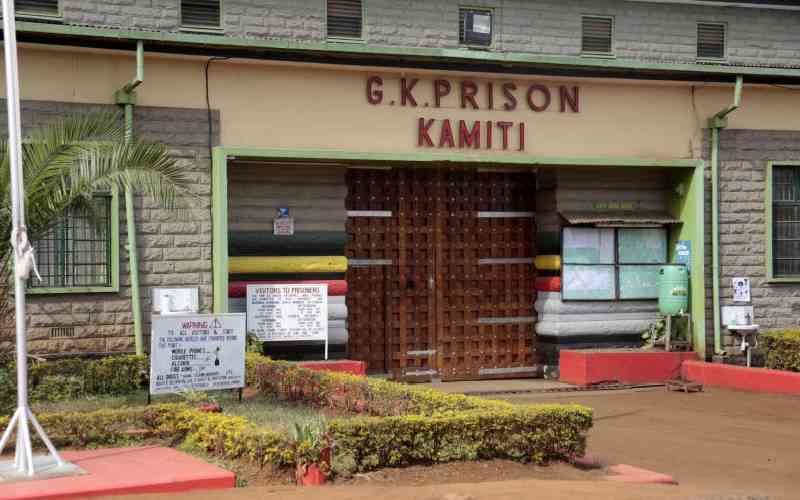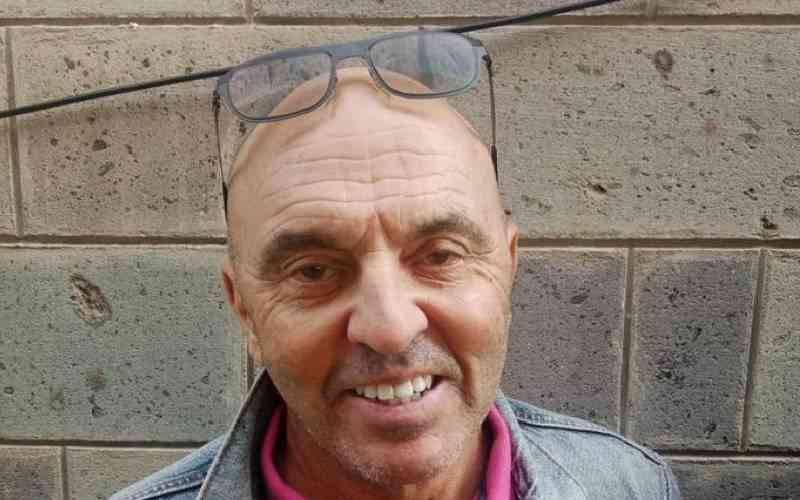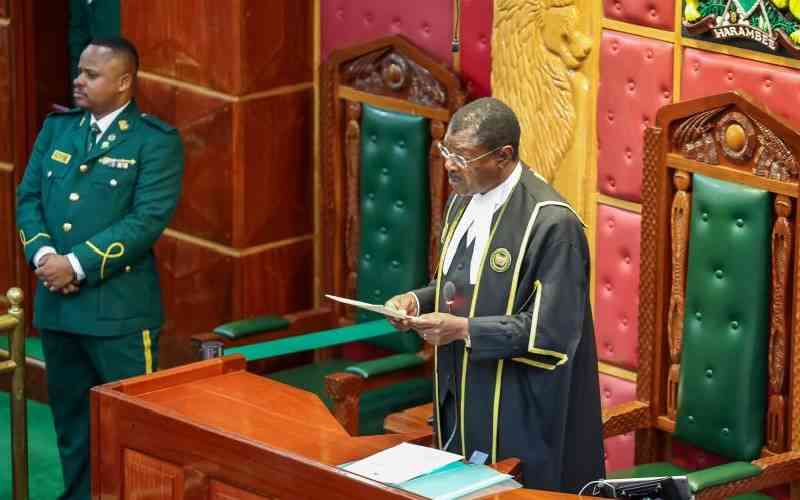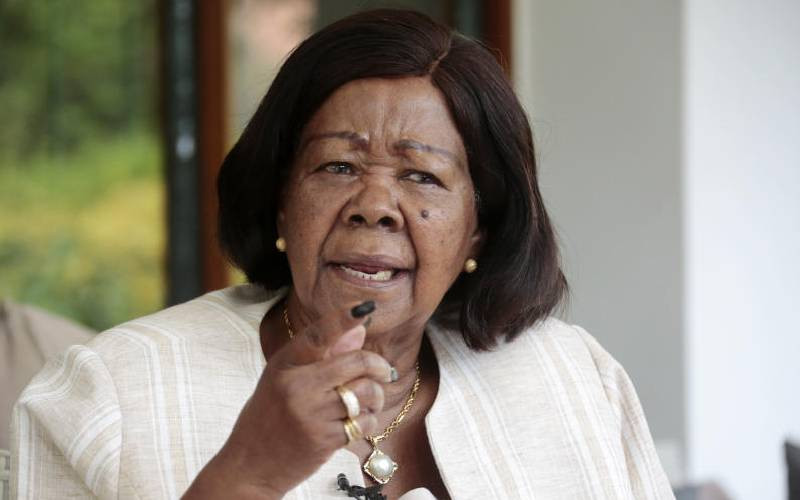
Meta logo is shown on a device screen. Meta is the new corporate name of Facebook. The social media platform will change to Meta to emphasize its metaverse vision. [Courtesy]
Facebook has suffered a blow after the High Court ruled that Meta, Facebook’s parent company, can be sued in the country over its alleged role in promoting content that contributed to ethnic violence in Ethiopia.
In his ruling, Justice Lawrence Mugambi of the Milimani Constitutional and Human Rights Division dismissed an application from the Kenya Human Rights Commission challenging the authority of Kenyan courts to handle a case brought by two individuals.
The case concerns Facebook's involvement in the civil war in northern Ethiopia’s Tigray region.
"After a careful review of the issues raised in this petition, I am convinced that it raises pertinent matters deserving of serious consideration by the Court," Judge Mugambi ruled.
According to the judge, the Kenyan High Court has the jurisdiction to hear the case, and he ordered that it proceed to a full hearing on Facebook's role in the conflict and its failure to address harmful content on its platform.
"The petition raises fundamental concerns regarding acts or omissions related to content posted on Facebook by content moderators based in Kenya, which may impact the observance of human rights beyond Kenya, through the use of social media. This falls within the Court’s jurisdiction under Article 165(3)(b) of the Constitution," the judge stated.
"It is the considered opinion of this Court that the petition should be heard on its merits, rather than being terminated at this preliminary stage. The respondent’s application to strike out the petition is hereby rejected," Judge Mugambi continued.
The judge also referred the matter to Chief Justice Martha Koome for the appointment of a bench to determine the issues raised in the petition.
"I am persuaded that this petition raises substantial questions of law and thus satisfies the threshold under Article 165(3)(b) and (d) of the Constitution. The petition is certified for the empanelment of a bench by the Honourable Chief Justice," Justice Mugambi ruled.
"These are matters of general public importance concerning the protection of fundamental rights and freedoms in the digital age. The resolution of this dispute will help establish a clear legal framework to ensure the protection of human rights in a borderless digital community," Judge Mugambi concluded.
The case, brought by Katiba Institute and Ethiopian nationals Abraham Meareg and Fisseha Tekle, alleges that Facebook's algorithms played a pivotal role in amplifying hate speech, inciting violence, and even facilitating murders during the violent Tigray conflict in Ethiopia between 2020 and 2022.
The petitioners claim that Meta, Facebook's parent company, failed to take responsibility for the content on its platform, which they argue exacerbated the situation in Ethiopia.
"The respondent’s Facebook algorithm recommends content that amounts to propaganda for war incitement to violence and advocacy to the Facebook users in Kenya," the court papers state.
The petitioner also accuses the respondent of granting preferential treatment to users in other countries as opposed to Facebook users in Africa, thus is discriminative.
They accuse Meta of enabling a toxic environment that led to the spread of inflammatory content, including posts that incited violence and death threats.
Most notably, Abrham’s father, Professor Meareg Amare Abrha, was murdered in 2021 after his home address and calls for his death were shared widely on Facebook.
Fisseha Tekle, a former Amnesty International researcher, was also subjected to violent threats and harassment on the platform.
KHRC sought to dismiss the case, arguing that Kenyan courts lacked jurisdiction to hear the matter since the company is not based in Kenya but in the USA.
The commission further claimed that as Facebook’s operations are global, any legal action against the company should be brought in the United States, where its headquarters are located.
The decision comes months after last year the Employment and Labour Relations Court also rejected similar jurisdictional arguments by Meta in separate cases involving the unlawful firing and exploitation of Facebook content moderators in Kenya.
This is the third time that Meta has lost to avoid the Kenyan court system.
In their case, Meareg and Tekle, along with the Katiba Institute, are seeking restitution for the harm caused by Facebook’s role in the conflict, along with a demand for substantial changes in how the platform moderates content.
The petitioners, through lawyer Mercy Mutemi, are also calling for a formal apology from Meta for its role in facilitating hate speech and violence, particularly the murder of Professor Abrha.
Further, they are seeking the establishment of a restitution fund to compensate victims of violence and hate speech on Facebook, with an initial request for Sh 250 billion ($2 billion) for harm caused by regular posts and Sh 50 billion ($400 million) for harm caused by sponsored content.
Immediate alterations to Facebook's algorithm to prevent the spread of violent content, including death threats, hate speech, and personal attacks.
Recruitment of additional content moderators to ensure that harmful content is adequately identified and removed, particularly in conflict zones such as Ethiopia.
 The Standard Group Plc is a multi-media organization with investments in media platforms spanning newspaper print
operations, television, radio broadcasting, digital and online services. The Standard Group is recognized as a
leading multi-media house in Kenya with a key influence in matters of national and international interest.
The Standard Group Plc is a multi-media organization with investments in media platforms spanning newspaper print
operations, television, radio broadcasting, digital and online services. The Standard Group is recognized as a
leading multi-media house in Kenya with a key influence in matters of national and international interest.

